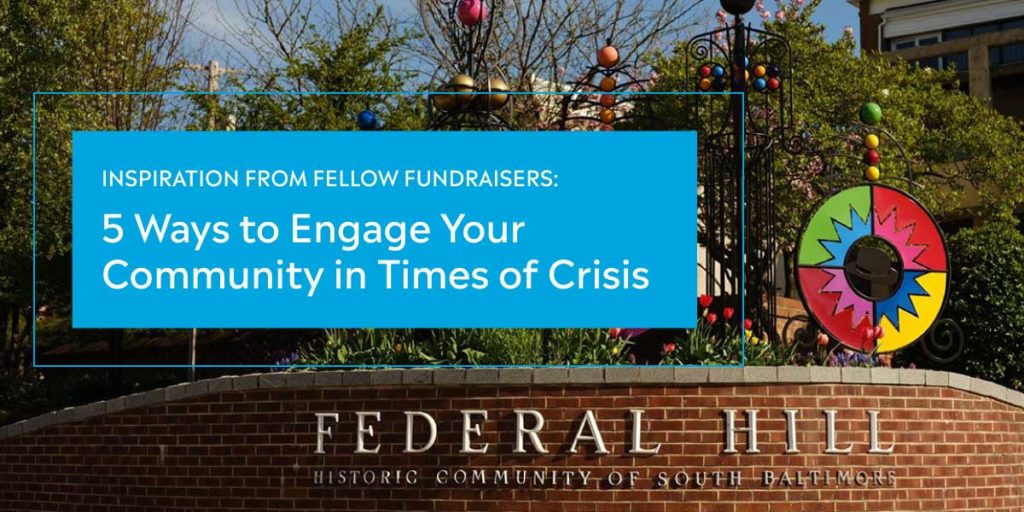Only a matter months ago, many of us had different expectations for the months and years ahead. Thinking back to early March, the gravity of the COVID-19 crisis was just beginning to dawn on our families, friends, and communities. We prepared ourselves to be patient, careful, and committed to riding out the storm.
Months later now, many of us are exhausted by the storm. We’ve been “at it” for months and have hardly any more clarity about what lies ahead of us than we did at the start. Under these conditions, we’re learning how difficult it is, and — in equal measure — how critical it is to practice healthy, sustainable relationships with ourselves, our social groups (socially distanced), and our communities at large. At this point in time, we must look to adding one more tool to our crisis toolkit: resilience.
Let’s examine this first from a technical lens (definitions), root ourselves in the reality of this word (a social critique), then finally circle home to the application of this word in times of crisis (resources for building resilience in times of prolonged crisis).
Resilience, by definition, is “an ability to recover from or adjust easily to misfortune or change”. Resilience is the ability (in many cases, the privilege) to be mentally, emotionally, and physically elastic to outside stressors, such as difficult change or trauma.
We must acknowledge that resilience is more than a “muscle”, or a private reserve that we all have within us, ready to be activated and strengthened with practice. Resilience, for many, isn’t a “nice to have”, it’s a “must have” in order to live a functional life in systematically challenging conditions. Examples of this include communities facing ongoing challenges posed by poverty, racism, discrimination, marginalization, homelessness, and more. The requirement of resilience to live is a glaring flaw in our social systems, and one that cannot go unnoticed in a narrower discussion of resilience in pandemic-related crisis.
Here we are, about half a year into quarantining, social distancing, disinfecting, and virtual solutioning. Some of us are hurting, some of us are restless. Most of us are, in some shape or form, exhausted. None of us wish for the world to continue in this way, but without a clear end in sight, we must determine how we, ourselves, will continue.
So now, to deliver on the promise made in the title: resources to build resilience in times of crisis. Below are resources you may explore to find what resilience looks like for you and your family. It takes many shapes — from mindsets to practices. I hope you find something true to you, to give you the strength needed to continue charging forward.

“A Psychologist’s Science-Based Tips for Emotional Resilience During the Coronavirus Crisis” by Jelena Kecmanovic
This wellness article in The Washington Post delivers the tangible take-aways we need, backed by research. A tip that I particularly appreciated was “reflect, relate and reframe.” In fact, this practice plays in well with other key points in the resources to follow — specifically, it relates to the exercise of guiding our attention toward the positive rather than the negative, which is where our attention often rests by default.
Read the full article here.
Know Your Natural Strengths
Many employers and universities are familiar with the StrengthsFinder assessment. The results of the assessment indicate your top strengths or skills, categorized generally by the following verticals: executing, relationship building, influencing, and strategic thinking.
Know you strengths so that you may leverage them. In times of crisis, many of us wonder if we are good enough, or doing enough. Considering this, it’s important to quiet those thoughts with more affirming ones: I am capable, I am competent, I am good at…[insert your top strengths here].
Once you know your strengths, develop confidence in them. Then leverage your strengths to get yourself and your loved ones through these difficult times.
Take a free version of the StrengthsFinder test here.
TED Talk by Susan Henkels: What if There’s Nothing Wrong With You
Watch the TED Talk here or below:
“This presentation is a discovery toward what’s in the way of having the life you deserve and an easier and more fun way of getting there. You will find ways of releasing judgment and criticism of yourself, begin to consider forgiveness of yourself and others, start making wiser choices, and expand your passion for contribution. Asking the question: What if there’s nothing wrong with you?…can become an ongoing practice for life.”
Grit: The Power of Passion and Perseverance by Angela Duckworth
Book description: “Pioneering psychologist Angela Duckworth shows anyone striving to succeed—be it parents, students, educators, athletes, or business people—that the secret to outstanding achievement is not talent but a special blend of passion and persistence she calls ‘grit.'”
Read more about Angela Duckworth and her book here.
Watch the TED Talk she delivered about the topic here.
Freakonomics Podcast: Ep. 422
Episode 422 – “Introducing ‘No Stupid Questions'”
Listen on Apple Podcasts, Stitcher, Google Podcasts, Spotify, or wherever you get your podcasts. Read the transcript here.
Co-hosts Stephen Dubner and Angela Duckworth discuss the relationship between age and happiness from the lens of psychology and stages of life and development. A key take away here: attention matters. Where you focus your attention (on the positive or negative) influences the perspective of your well-being.

